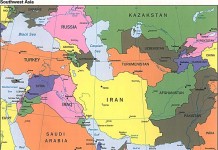Context
 As the Gaza Conflict unfolds, it gives rise to alarming levels of discrepancy in global perceptions and perspectives surrounding this crisis. This can not only challenge not the legitimacy of the Global War on Terrorism (GWOT) but also threaten the global system.
As the Gaza Conflict unfolds, it gives rise to alarming levels of discrepancy in global perceptions and perspectives surrounding this crisis. This can not only challenge not the legitimacy of the Global War on Terrorism (GWOT) but also threaten the global system.
The crisis and its civilian toll are shifting the public perception of the credibility of the Arab governments in the Middle East and other corners of the Islamic world. The crisis seems to be reinforcing the message of AQ and other Islamic extremists that Israel is out to destroy Muslims, and that the United States is doing the same in Afghanistan and by arming and supporting Israel. The loser in this conflict will not be Hamas or Israel but pro-western Arab and Muslim governments that appear impotent and unable to represent the will of their citizens.
From the American perspective, someone had to deal with Hamas, and who better than Israel. The aloofness of the new U.S. administration at this critical juncture, due to the niceties of the transition protocol, will cost it dearly in any initiatives it plans to undertake in the future.
The definition of what constitutes terrorism is fast losing legitimacy under the present circumstances. In the bereaved parts of the Muslim world, the message of AQ will be heard much louder and more clearly. The Gaza conflict erupted at a time when successes were achieved in Iraq and some improvements were reported in the public perception of extremists in some parts of FATA in Pakistan.
In the Islamic world, the issues of Kashmir, Chechnya, and Palestine have inspired movements, and Jihad is deemed a justified response. Discrediting these struggles or linking them with terrorism serves only to make these movements spread and become more influential. Using power to allay grievances or silencing the voices against injustices only makes the present global system, and the multilateral institutions that support this system, lose credibility.



